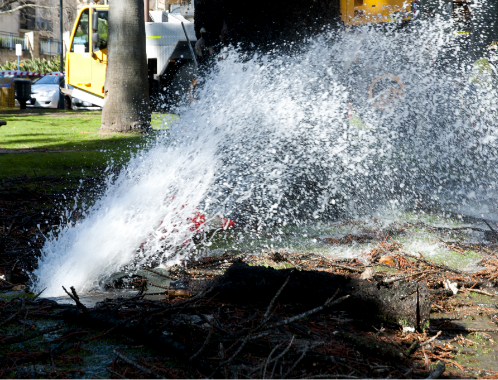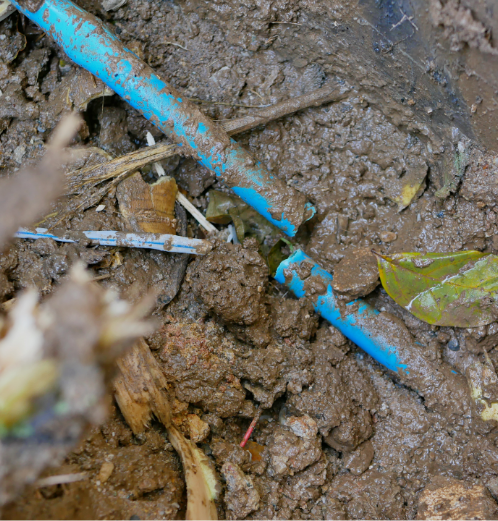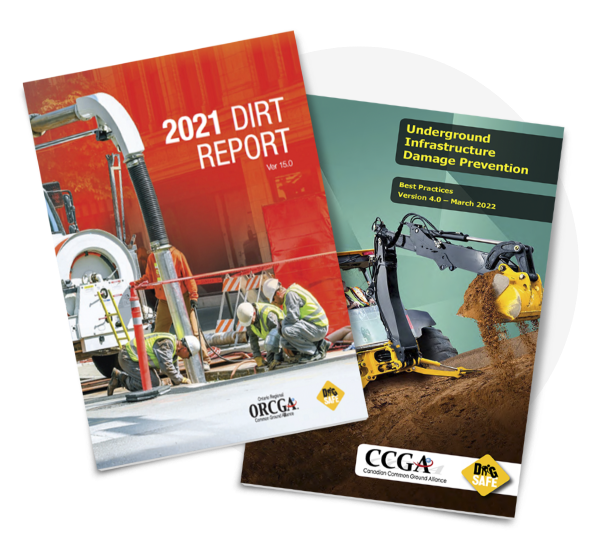There are numerous underground hazards that could cause serious injuries. Hitting gas, electric, or other high-pressure pipes and lines could have fatal consequences.
We must all prevent damages to protect our communities.
Never assume it is safe to dig
- Nicking a gas line could lead to leaks, fire, or explosions.
- Damaging electrical cables could shock or electrocute you.
- Hitting water or sewer lines could cause flying debris, floods, contamination, and environmental hazards.
- Cutting telecommunications cables could disrupt internet or cable services and your ability to call 911 in an emergency.
To dig safely, excavators must first obtain a locate by contacting Ontario One Call, then follow the written instructions provided with each locate response, and follow best practices as outlined in the Canadian Common Ground Association’s (CCGA) Underground Infrastructure Damage Prevention Best Practices.
Anyone not following safe digging practices, and who hits underground infrastructure could be held liable for damages. Charges and fines could also be laid by the Ministry of Labour and the Technical Standards and Safety Authority (TSSA).
Despite these penalties, the Ontario Regional Common Ground Alliance’s (ORCGA) DIRT Report found that there were 4,222 reported damages to underground cables, pipes, and lines in 2023. 38% of the damages were caused by improper excavation practices, and 39% were caused because a locate was not requested.


Electrical Safety
Workers who undertake the replacement of a metallic water meter or metallic water piping system should be aware of a possibility of electrical shock or arcing occurring when the continuity of the water piping is interrupted. Always assume there may be flow of electricity in the piping system and deal with the metallic water pipes as if they are energized.
Learn more through the ESA here on their website.

Damage to underground infrastructure is preventable
Always Click Before You Dig and follow safe digging practices.
Want to know more about underground infrastructure damages in Ontario?
